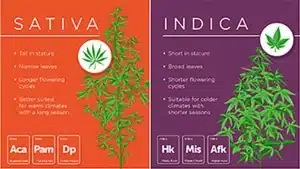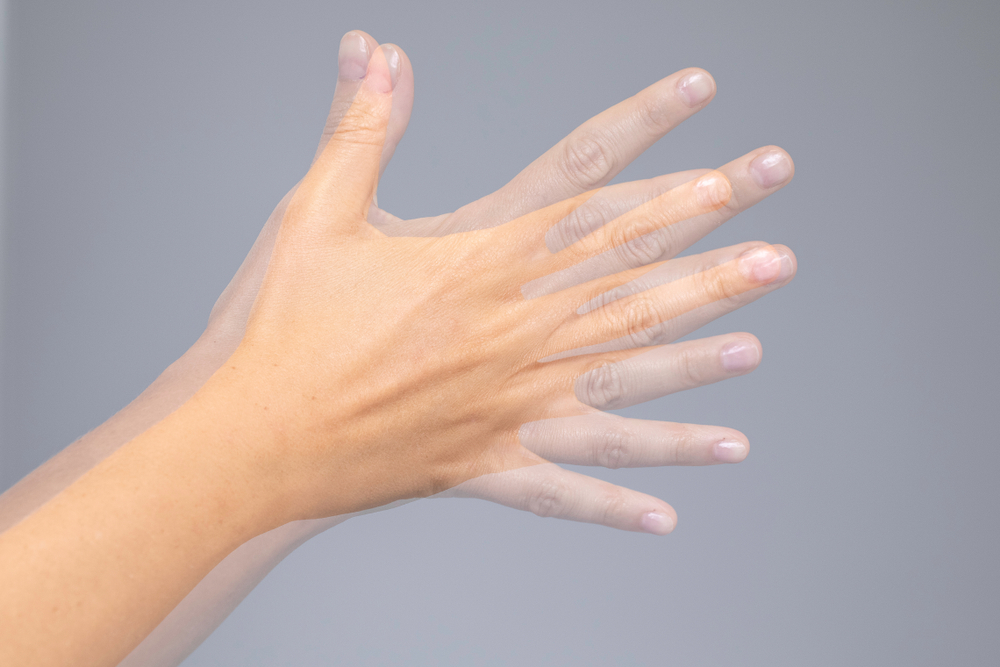
How MMJ Health can help Dystonia Patients
Dystonia is a type of movement disorder. The disorder is characterized by involuntary muscle contractions and spasms that cause repetitive or twisting movements. Dystonia can affect one part of your body (focal dystonia) or several parts of your body (general dystonia). The muscle spasms can range from mild to severe and may be painful or interfere with day-to-day life.
Dystonia is a neurological disorder characterized by involuntary muscle contractions that cause twisting and repetitive movements or abnormal postures. Dystonia can have a significant impact on a person’s quality of life, making even simple tasks uncomfortable and challenging. Fortunately, medical marijuana has emerged as a promising option in managing the symptoms of Dystonia. THC and CBD, the cannabinoids present in medical marijuana, have shown potential in easing muscle spasms, reducing pain, and promoting relaxation. As it interacts with the body’s endocannabinoid system, medical marijuana can help regulate muscle control and alleviate the discomfort associated with Dystonia. The experienced doctors at MMJ Health understand the potential benefits of medical marijuana for Dystonia patients and can guide you through the process of obtaining a medical marijuana recommendation tailored to your specific needs.


While it is not known what causes dystonia, doctors believe it may involve altered nerve-cell communication issues in several parts of the brain and some forms of dystonia are hereditary.
Dystonia is also a common symptom of the following diseases or conditions:
If you have been affected by any of these conditions and are experiencing dystonia, you should schedule an appointment with your doctor.
Understanding the causes of Dystonia is essential in unraveling the complexities of this neurological condition. Dystonia can arise from various factors, including genetic predisposition, certain medical conditions, or even medication side effects. By exploring the underlying causes, we can better comprehend this condition and work towards effective management strategies. Let’s take a closer look at the potential triggers behind Dystonia:
In addition, understanding the underlying causes of Dystonia helps medical professionals tailor treatment approaches and makes it easier for patients to make informed decisions about their care.
Dystonia manifests in various forms, each with its unique traits and affected body regions. It is crucial to recognize the different types of Dystonia in order to diagnose and manage this neurological condition effectively. Let’s look into the diverse spectrum of Dystonia types:
Dystonia is classified by 3 main factors:
There are 3 types of dystonia classification by body part:
There are 4 types of dystonia classification by cause:
Depending on the type of dystonia, complications can include:

When it comes to Dystonia, it is crucial to recognize the range of symptoms to identify and manage this neurological condition. Dystonia can present with a variety of signs, which can differ depending on the type and affected body regions. By understanding the common symptoms associated with Dystonia, individuals and healthcare professionals can work together to develop effective treatment strategies.
Sometimes, in early stages – dystonia may be misdiagnosed as stress, a stiff neck or a psychological disorder. Diagnosis is difficult due to dystonia misrepresenting as another condition and sometimes may be mistaken as a symptom of a psychological disorder as well by doctors.
Dystonia also affects different people in a variety of ways, the muscle contractions may:
If you have been affected by any of these conditions and are experiencing dystonia, you should schedule an appointment with your doctor.
Additional symptoms of Dystonia are:
As dystonia can be hard to diagnose and early signs can be mild due to symptoms you should see your doctor if you’re experiencing involuntary muscle spasms and contractions. There is no definitive test for dystonia but doctors can make the diagnosis by knowing the symptoms and performing a neurological exam, genetic testing. They may also perform a brain MRI to rule out other causes.
Please see a licensed doctor in order to get properly diagnosed with dystonia. MMJ Health has professional and knowledgeable Medical Marijuana Specialists that can create a treatment plan that works for your lifestyle.
In order to receive a proper Dystonia diagnosis, the licensed doctor will perform:

If you’ve been considering lately the use of terpenes for Dystonia, it’s important to note that scientific research in this specific area is limited and individual responses to terpenes may vary. However, certain terpenes have shown potential in providing therapeutic effects that could benefit the managing symptoms of this neurological condition. Here are some terpenes worth exploring:
Usually found in cannabis, this terpene is known for its sedating and relaxing properties. Scientists believe it may help reduce muscle spasms and promote relaxation.
This terpene is often associated with uplifting and mood-enhancing effects. It has been studied for its potential analgesic properties, which may aid in managing pain associated with Dystonia.
Known for its calming and soothing properties, this terpene may help alleviate anxiety and muscle tension, potentially aiding some symptoms of Dystonia.
Pinene is a terpene recognized for its anti-inflammatory properties. It may also help mitigate inflammation and associated discomfort that can occur with Dystonia.
It may have anti-inflammatory properties and analgesic effects. It may also be beneficial for pain management and alleviating inflammation related to Dystonia.
When it comes to identifying the best strains for Dystonia, it’s essential to consider individual responses to different cannabis strains that may vary. Additionally, scientific research specifically focusing on strains for Dystonia is limited. However, certain strains have been reported anecdotally to provide potential benefits for managing symptoms. Here are some strains that are worth exploring:
Its high THC and CBD levels are thought to provide long-lasting relief from muscle spasms and its delicious and fruity mango flavor also helps to manage stress and alleviate pain.
This indica strain is popular for its heavy relaxing effects. It may help patients with dystonia by relieving pain and reducing stress.
It’s a powerful indica strain that may benefit patients with dystonia by alleviating pain.
Granddaddy Purple is an indica-dominant strain known for its potential sedating and relaxing properties. It may assist in reducing muscle spasms, promoting sleep, and providing overall relief.
It’s a popular sativa strain that is a favorite because of its stress-relieving properties. It may be really helpful for treating muscle spasms related to dystonia. It will uplift your mood and help you ease the depression generally associated with this condition.
This cannabis strain is known for its medical benefits. It may help with chronic pain, commonly associated with dystonia.
It is important to note that strains can have varying effects on different individuals, and finding the most suitable strain for managing Dystonia may require some experimentation. Consulting with a healthcare professional knowledgeable about medical marijuana and Dystonia can provide personalized guidance and help determine the best strains and consumption methods for your specific needs.
Let’s look into some of the most relevant online tools and resources available to patients with Dystonia:

While there is no cure for dystonia and treatment is directed at relieving symptoms, you may be able to find treatments currently available that include either one or a combination of botulinum toxin (botox) injections, several types of medication and possibly even surgery.
However, if you cannot use the traditional methods of treatment for dystonia. Studies have shown some success when medical marijuana has been used to treat and manage muscle spasms, dystonia and other involuntary muscular disorders.
Under Amendment 2, dystonia may be a qualifying condition for a medical marijuana card in Florida. If you are currently suffering from dystonia and would like to talk to our certified Florida Marijuana doctors, you can book an appointment and come to any of our 10 convenient MMJ Health locations.
In conclusion, navigating life with Dystonia can be challenging, but with the right support and resources, it is possible to find relief and improve your quality of life. MMJ Health, with its 9 convenient locations in Florida, is dedicated to providing compassionate care and expertise in medical marijuana treatment. Our friendly and knowledgeable staff, along with our experienced doctors specializing in medical marijuana, are here to guide you through the process. If you or a loved one are seeking relief from Dystonia symptoms ore are interested in exploring the potential benefits of medical marijuana, we encourage you to book an appointment with MMJ Health today. Take the first step towards a more comfortable and fulfilling life by contacting us at [phone number] or visiting our website to schedule your consultation. Let us be your trusted partner on your journey to better health and well-being.
For those living with Dystonia, one of the biggest struggles is the impact it can have on their daily lives. Dystonia can significantly affect mobility, coordination, and overall physical function, making even simple tasks a challenge. The involuntary muscle contractions, spasms, and abnormal postures associated with Dystonia can lead to pain, discomfort, and fatigue. This can result in limitations in performing routine activities, such as walking, writing, or even speaking. Furthermore, Dystonia can have an emotional and social impact, as individuals may experience embarrassment, self-consciousness, and a sense of isolation due to their visible symptoms. Coping with the physical and emotional aspects of Dystonia requires resilience, support, and access to comprehensive treatment options to help manage symptoms and improve quality of life.